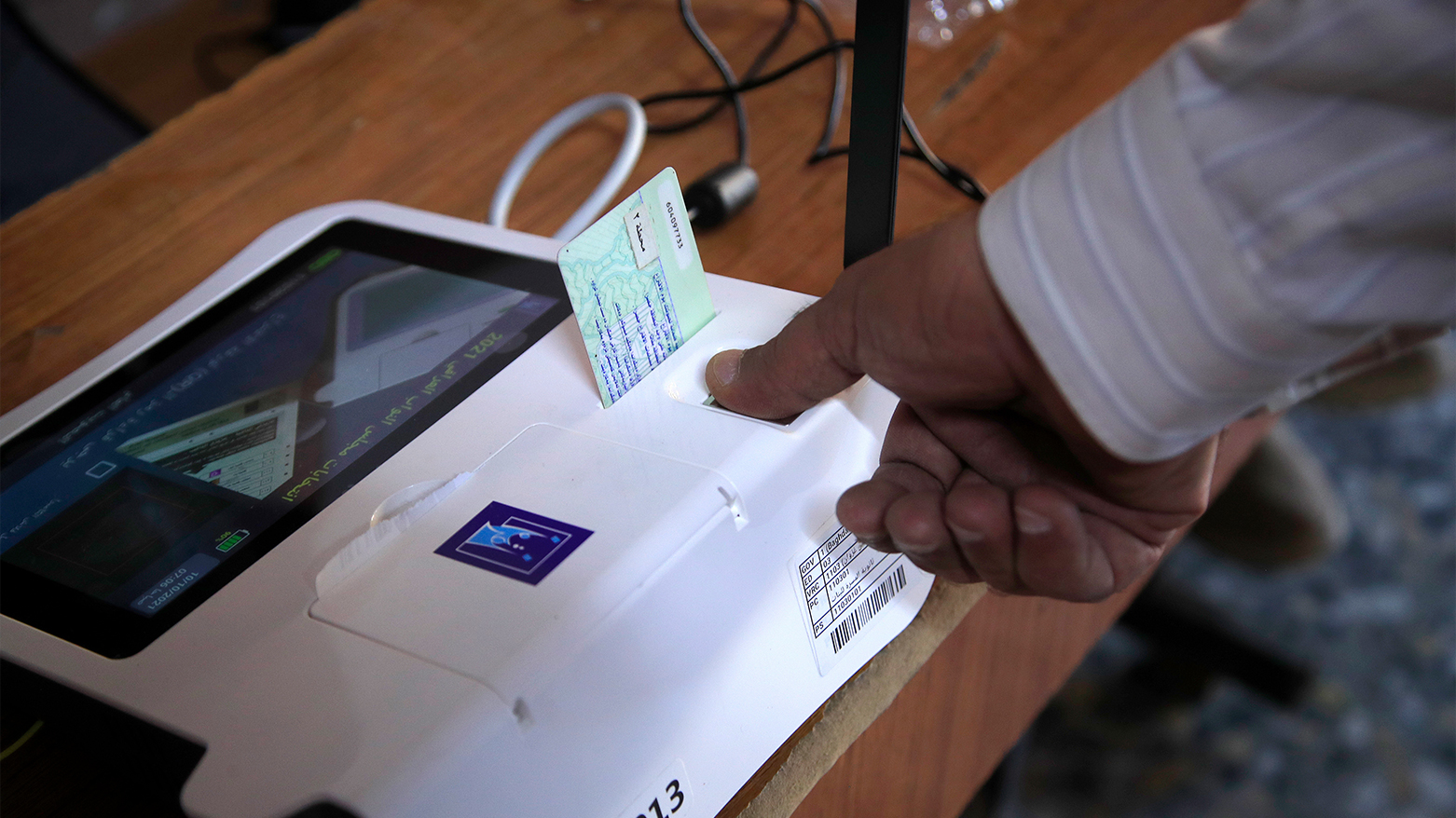$100 for Your Vote: Black Market Surge Raises Alarm Ahead of Iraq's 2025 Elections
According to information obtained by Kurdistan24, biometric voter cards are being bought and sold for $100 each.

By Kamaran Aziz
ERBIL (Kurdistan24) — With more than six months remaining before Iraq’s sixth parliamentary elections, scheduled for November 11, 2025, alarming reports have surfaced of a growing underground trade in biometric voting cards. The practice, which threatens the integrity of the upcoming vote, is already drawing scrutiny from the Independent High Electoral Commission (IHEC) and fueling public concern over electoral fraud.
According to information obtained by Kurdistan24, biometric voter cards are being bought and sold for $100 each.
The transaction, sources say, is typically split into two payments: the voter receives $50 upfront upon surrendering the card and is promised the remaining $50 on election day itself, presumably in exchange for voting in a prearranged manner—or not voting at all.
The head of IHEC’s media team has warned that the intent behind these purchases is clear and deeply troubling: to manipulate election results by disabling legitimate votes and exploiting compromised cards. “The purpose of buying biometric voting cards is to manipulate the cards and deprive voters of voting,” he said, describing the practice as a direct assault on Iraq’s fragile democratic process.
The emergence of this scheme signals that political parties and actors are already mobilizing well ahead of schedule—strategizing not only through traditional campaigning, but also through covert operations to sway electoral outcomes. While Iraq has long struggled with vote tampering, ballot stuffing, and post-election disputes, the biometric card system was introduced as a safeguard against such irregularities.
The fact that this very tool is now being turned into a liability reveals the deep institutional challenges facing the country’s electoral infrastructure.
Introduced in recent years, biometric cards were designed to authenticate voter identities with fingerprint and facial data, ensuring that each citizen casts only one ballot. Yet, as reports indicate, the cards’ growing value on the black market has rendered them a potent instrument of electoral manipulation, particularly in economically vulnerable areas where voters may be enticed to sell their participation rights for a modest sum.
Political analysts warn that such developments, if left unchecked, could delegitimize the November elections before they even take place.
The challenge for Iraq’s electoral authorities is not only to investigate and curb these transactions but also to restore confidence among voters that their voice matters. With parties already jockeying for power and influence, the early onset of electoral subversion raises the specter of a deeply contested and potentially unstable political season ahead.
Observers note that this is not the first time voter fraud and interference have marred Iraq’s democratic processes. Previous elections have been plagued by accusations of vote buying, coercion, and systemic irregularities—often fueling postelection violence and disillusionment. The biometric system was supposed to mark a new chapter, but unless the current wave of manipulation is addressed, it could instead deepen the cycle of mistrust.
IHEC has not yet specified what steps will be taken to combat the card-buying phenomenon, though calls are growing for legal action, voter education campaigns, and enhanced card tracking mechanisms.
As November approaches, Iraqis are watching closely. Whether the 2025 elections will mark a step forward in democratic consolidation—or another chapter in a story of broken promises—may depend on how decisively the authorities act in the months ahead.
